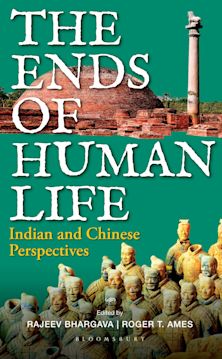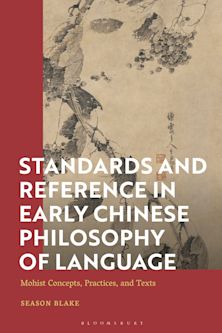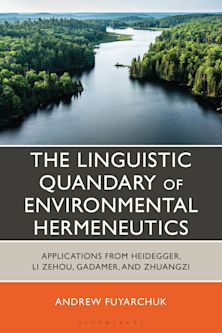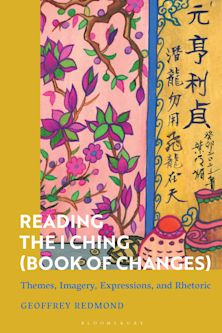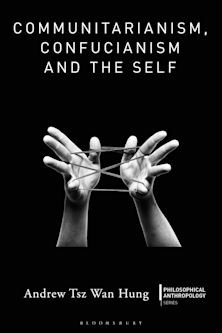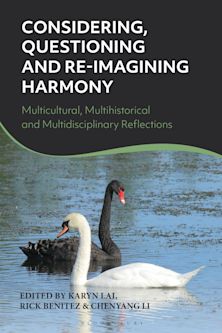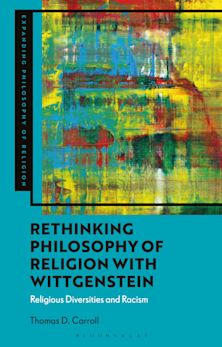Essentials of Neo-Confucianism
Eight Major Philosophers of the Song and Ming Periods
Essentials of Neo-Confucianism
Eight Major Philosophers of the Song and Ming Periods
This product is usually dispatched within 1 week
- Delivery and returns info
-
Free CA delivery on orders $40 or over
Description
Huang's book analyzes the major Neo-Confucian philosophers from the eleventh to the sixteenth centuries. Focusing on metaphysical, epistemological, and ethical philosophical issues, this study presents the historical development of the Neo-Confucian school, an outgrowth of ancient Confucianism, and characterizes its thought, background, and influence. Key concepts—for example ^Utai-ji (supreme ultimate), ^Uxin (mind), and ^Uren (humanity)—as interpreted by each thinker are discussed in detail. Also examined are the two major schools that developed during this period, Cheng-Zhu, School of Principle, and Lu-Wang, School of Mind. These schools, despite different philosophical orientations, were convinced that their common goal, to bring about a harmonious relationships between man and the universe and between man and man, could be achieved through different ways of philosophizing. To understand the Chinese mind, it is necessary to understand Neo-Confucianism as a reformation of early Confucianism.
This analytical presentation of major Neo-Confucian philosophers, from the eleventh to the sixteenth centuries, examines Zhou Dun-yi (1017-1073), Shao Yong (1011-1077), Zhang Zai (1020-1077), Cheng Hao (1032-1085), Cheng Yi (1033-1107), Zhu Xi (1130-1200), Lu Xiang-shan (1139-1193), and Wang Yang-ming (1427-1529). With its focus on metaphysical, epistemological, and ethical philosophical issues, Huang's study presents the historical development of the Neo-Confucian school, an outgrowth of ancient Confucianism, and characterizes its thought, background, and influence. Key concepts—for example, ^Utai-ji (supreme ultimate), ^Uxin (mind), and ^Uren (humanity)—as interpreted by each thinker are discussed in detail. The two major schools that developed during these six centuries are examined as well. Lu-Wang, School of Mind, developed in criticism of Cheng-Zhu, School of Principle. The two schools, despite different approaches toward their philosophical pursuits, were convinced that their common goals, to bring about harmonious relationships between man and the universe and between man and man, could be achieved through different ways of philosophizing. To understand the Chinese mind, it is necessary to understand Neo-Confucianism as a reformation of early Confucianism.
Scholars of Eastern religions and philosophy will appreciate the objective interpretations of each thinker's philosophy, for which pertinent passages spoken by each man have been selected and translated by the author from the original Chinese, and the comparisons of the Neo-Confucian philosophies with those of the West. An introduction provides the historical background in which to study the rise of Neo-Confucianism. The study is organized ehronologically and includes a glossary of terms and a bibliography which serves as a helpful guide for further research.
Table of Contents
Historical and Philosophical Contexts
Northern Song 960-1126
Zhou Dun-yi (1017-1073)
Shao Yong (1011-1077)
Zhang Zai (1020-1076)
Cheng Hao (1032-1085)
Cheng Yi (1033-1107)
Southern Song 1127-1279
Zhu Xi (1130-1200) (I)
Zhu Xi (II)
Lu Xiang-shan (1139-1193)
Ming Dynasty 1368-1643
Wang Yang-ming (1472-1529)
Conclusion
Glossary
Bibliography
Index
Product details
| Published | Nov 30 1999 |
|---|---|
| Format | Hardback |
| Edition | 1st |
| Extent | 280 |
| ISBN | 9780313264498 |
| Imprint | Greenwood |
| Dimensions | 235 x 156 mm |
| Series | Resources in Asian Philosophy and Religion |
| Publisher | Bloomsbury Publishing |
Reviews

ONLINE RESOURCES
Bloomsbury Collections
This book is available on Bloomsbury Collections where your library has access.












